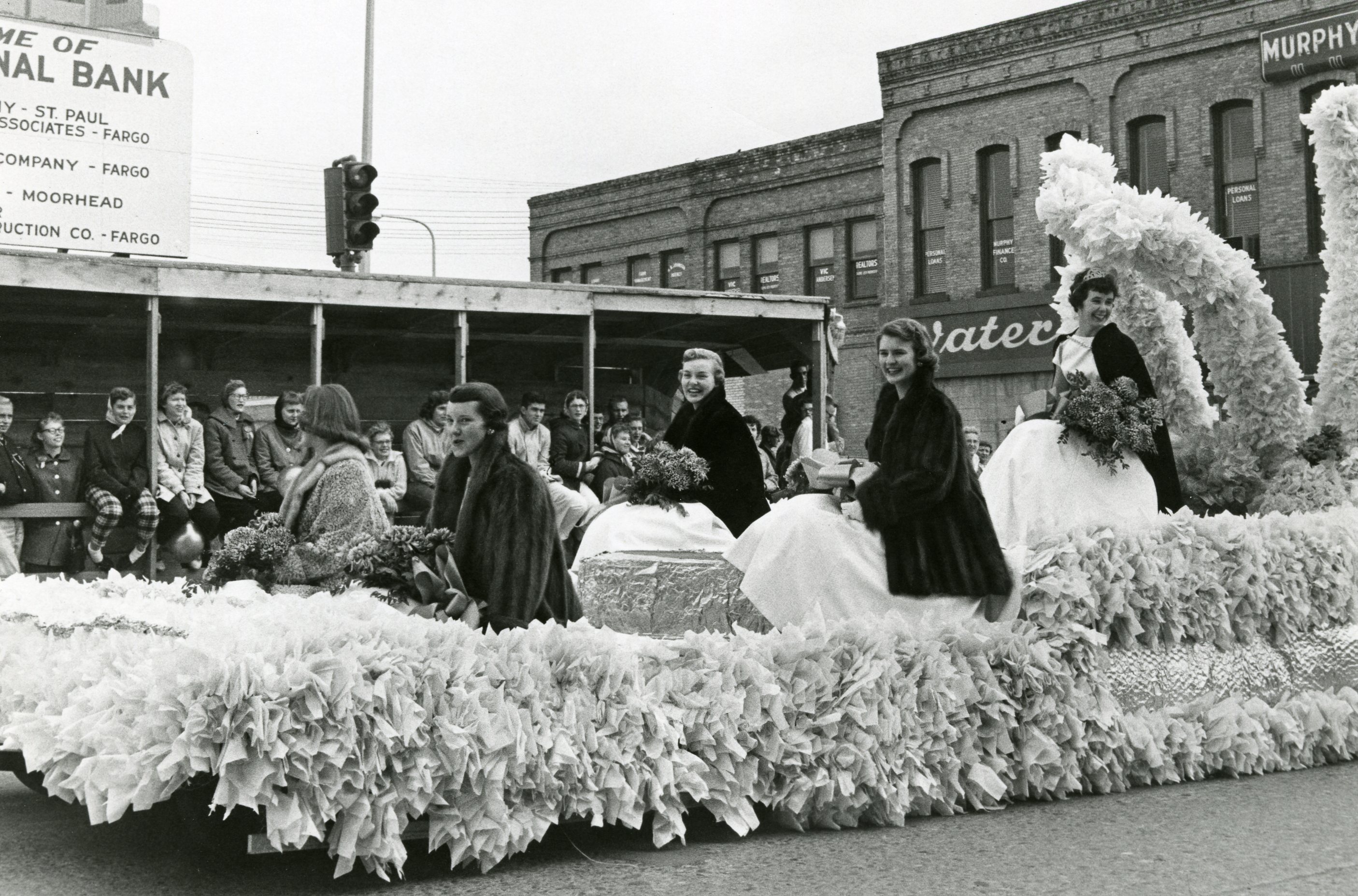 Concordia’s tradition of crowning a homecoming queen began in the 1920s. Student movements and the influence of the 1960-70s society affected the practice. Due to student concerns, the 1974 Homecoming Chairperson Ken Fitzer substituted the tradition of voting for a homecoming queen with the Don Awards, which was a recognition given to four exemplary senior students. The current practice of crowning both a king and queen began during the homecoming festivities in 1977. Concordia’s tradition of crowning a homecoming queen began in the 1920s. Student movements and the influence of the 1960-70s society affected the practice. Due to student concerns, the 1974 Homecoming Chairperson Ken Fitzer substituted the tradition of voting for a homecoming queen with the Don Awards, which was a recognition given to four exemplary senior students. The current practice of crowning both a king and queen began during the homecoming festivities in 1977.
|
 Until the early 1970s, Concordia College imposed restrictive rules and strict regulations pertaining to women’s curfews and lights out. The questioning of authority surrounding the Vietnam War and the feminist movement helped to empower female Cobbers to advocate for their personal freedom. Through a variety of strategies such as demonstrations, lobbying, and expressing opinions in the campus newspaper, women studying at Concordia gained personal freedom and independence when Women’s Hours were eliminated in 1973. Until the early 1970s, Concordia College imposed restrictive rules and strict regulations pertaining to women’s curfews and lights out. The questioning of authority surrounding the Vietnam War and the feminist movement helped to empower female Cobbers to advocate for their personal freedom. Through a variety of strategies such as demonstrations, lobbying, and expressing opinions in the campus newspaper, women studying at Concordia gained personal freedom and independence when Women’s Hours were eliminated in 1973.
|
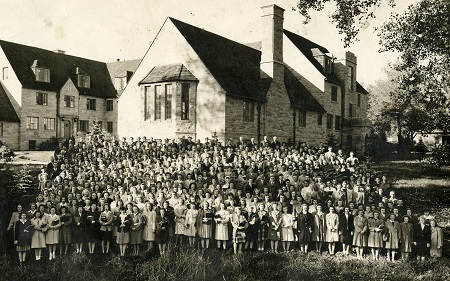 In the midst of World War II Concordia College adapted to wartime restrictions and decreasing enrollment. Due to the military draft the number of male students enrolled dropped, while the number of females attending the college increased dramatically. Accordingly, Concordia established programs and courses that allowed and encouraged women to contribute to the war effort. In the midst of World War II Concordia College adapted to wartime restrictions and decreasing enrollment. Due to the military draft the number of male students enrolled dropped, while the number of females attending the college increased dramatically. Accordingly, Concordia established programs and courses that allowed and encouraged women to contribute to the war effort.
|
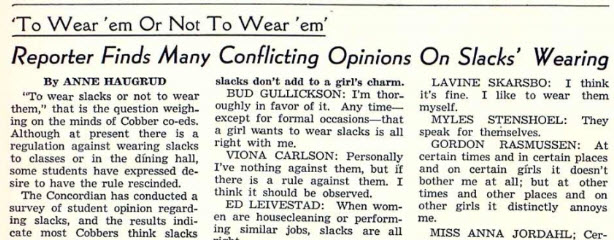 Double standards in the regulation of student conduct at Concordia College placed the liberties of women below those of men. Dress codes and smoking policies in particular explicitly treated female students differently than male students. A combination of student action as well as changing social views brought an end to these sexist differences in regulation over the course of the 1960s and 1970s. Double standards in the regulation of student conduct at Concordia College placed the liberties of women below those of men. Dress codes and smoking policies in particular explicitly treated female students differently than male students. A combination of student action as well as changing social views brought an end to these sexist differences in regulation over the course of the 1960s and 1970s.
|
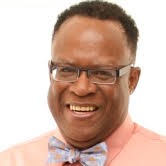 Eric Fontaine attended Concordia College during a period of dramatic racial change in higher education, matriculating in 1970 and graduating in 1974. Stepping from the nation’s capital, Fontaine asserted himself on campus through multiple extra-curricular involvements and leadership positions. He served as a guest editorialist for the student paper and as copy editor of the yearbook. In 1973, Fontaine became the first African American student in the college’s history to be elected Student Association president. Following graduation, Fontaine went on to pursue a wide-ranging career as a human resources professional, providing diversity expertise through consulting, coaching, teaching, and training in industry, government, and higher education. Eric Fontaine attended Concordia College during a period of dramatic racial change in higher education, matriculating in 1970 and graduating in 1974. Stepping from the nation’s capital, Fontaine asserted himself on campus through multiple extra-curricular involvements and leadership positions. He served as a guest editorialist for the student paper and as copy editor of the yearbook. In 1973, Fontaine became the first African American student in the college’s history to be elected Student Association president. Following graduation, Fontaine went on to pursue a wide-ranging career as a human resources professional, providing diversity expertise through consulting, coaching, teaching, and training in industry, government, and higher education.
|
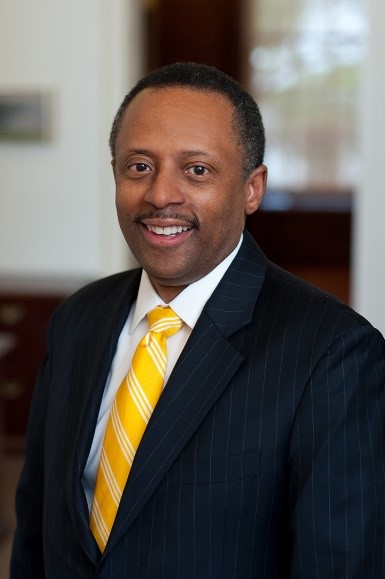 Born in Norfolk, Virginia, Earl Lewis came of age during the hard struggle for school integration in the South, and nationwide, that followed the landmark Brown v. Board of Education decisions (1954-1955). When Lewis studied at Concordia College between 1974 and 1978, the Civil Rights, Black Power, and Black Student Movements had already instigated momentous racial reform in the country’s colleges and universities. He participated in the Black Student Strike in the spring of 1976, a memorable marker in Concordia’s history as black student enrollments reached high tide before receding. Lewis’s academic achievements as an undergraduate anticipated a storied career as a scholar, administrator, innovator and entrepreneur, and leader in higher education. Serious and steady, yet affable and down-to-earth, Lewis embodies Concordia’s commitment to influence the world through studied preparation and dedicated service. Recipient of countless honors and awards, Lewis joined the college’s Board of Regents in 2008 and became chair in 2018. Born in Norfolk, Virginia, Earl Lewis came of age during the hard struggle for school integration in the South, and nationwide, that followed the landmark Brown v. Board of Education decisions (1954-1955). When Lewis studied at Concordia College between 1974 and 1978, the Civil Rights, Black Power, and Black Student Movements had already instigated momentous racial reform in the country’s colleges and universities. He participated in the Black Student Strike in the spring of 1976, a memorable marker in Concordia’s history as black student enrollments reached high tide before receding. Lewis’s academic achievements as an undergraduate anticipated a storied career as a scholar, administrator, innovator and entrepreneur, and leader in higher education. Serious and steady, yet affable and down-to-earth, Lewis embodies Concordia’s commitment to influence the world through studied preparation and dedicated service. Recipient of countless honors and awards, Lewis joined the college’s Board of Regents in 2008 and became chair in 2018.
|
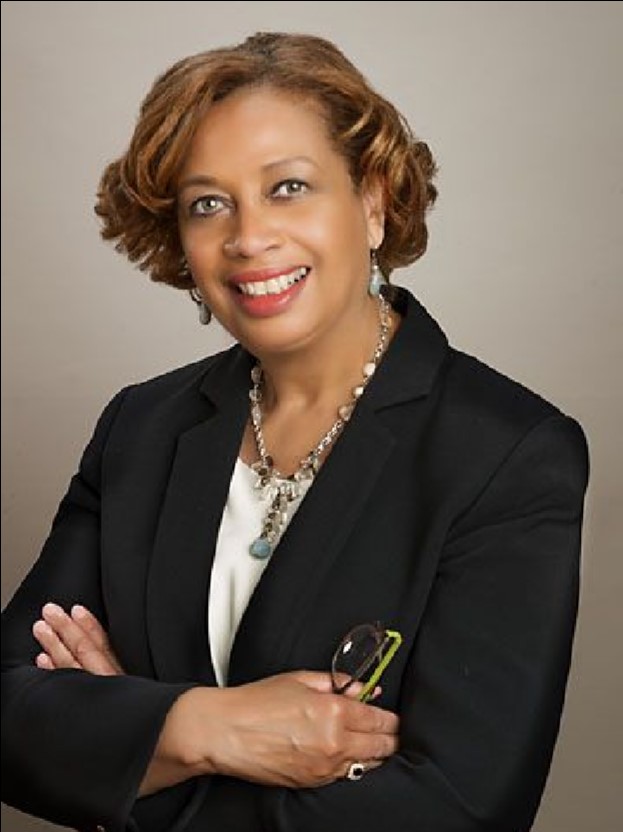 Born in La Porte, Indiana, offspring of a Lutheran household, Fay Holmes-Ferguson followed her faith tradition in attending Concordia College. As changes set in motion by the Civil Rights and Black Student Movements rippled through higher education, Holmes joined the first cohort of African American students on Concordia’s largely white campus. She graduated magna cum laude, going on to earn an M.B.A. degree from Indiana University. Holmes-Ferguson followed a successful career in advertising, eventually being named co-CEO at Burrell Communications Group, Chicago, Illinois. Ferguson joined Concordia’s Board of Regents in 2012. In 2016, Fay saw a need and felt compelled to create the Diversity Student Endowed Scholarship which she co-founded with Concordia alumnus Dr. Earl Lewis '78. The goal of the scholarship fund is twofuld: to encourage students from diverse backgrounds to attend a quality liberal arts college and to increase the diversity of experiences represented on Concordia's campus. A gifted executive and community leader, Ferguson’s core life motto of leading a purpose-driven life focused on helping others, exemplifies the spirit and mission of Concordia College. Born in La Porte, Indiana, offspring of a Lutheran household, Fay Holmes-Ferguson followed her faith tradition in attending Concordia College. As changes set in motion by the Civil Rights and Black Student Movements rippled through higher education, Holmes joined the first cohort of African American students on Concordia’s largely white campus. She graduated magna cum laude, going on to earn an M.B.A. degree from Indiana University. Holmes-Ferguson followed a successful career in advertising, eventually being named co-CEO at Burrell Communications Group, Chicago, Illinois. Ferguson joined Concordia’s Board of Regents in 2012. In 2016, Fay saw a need and felt compelled to create the Diversity Student Endowed Scholarship which she co-founded with Concordia alumnus Dr. Earl Lewis '78. The goal of the scholarship fund is twofuld: to encourage students from diverse backgrounds to attend a quality liberal arts college and to increase the diversity of experiences represented on Concordia's campus. A gifted executive and community leader, Ferguson’s core life motto of leading a purpose-driven life focused on helping others, exemplifies the spirit and mission of Concordia College.
|
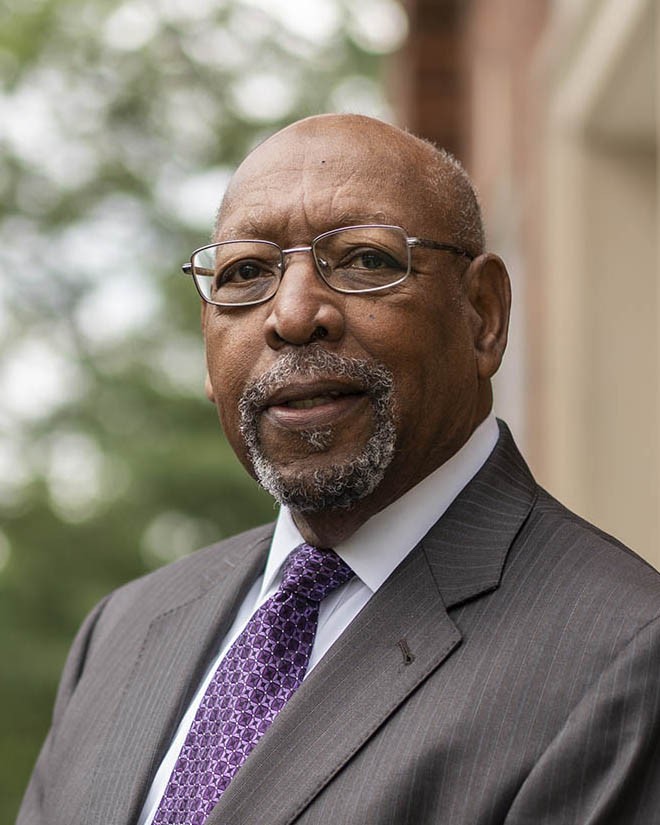 A native of Louisville, Kentucky, Richard Green attended Concordia College during the tumult and excitement of the early modern Civil Rights Movement, becoming the college’s first African American graduate in 1961. A chemistry major, Green went on to earn a master’s degree in science at North Dakota State University (1963) and his PhD in the field of inorganic chemistry at the University of Louisville (1969). In 1964, Green married Dorothy Reed and began work at a chemical firm in Louisville. Richard and Dr. Dorothy Green have two adult children, Richard Clayton and Kim Elizabeth and three grandchildren. Richard C. is a graduate of Stanford University and Kim a graduate of Northwestern University. Green returned to Concordia in 1969 as an assistant professor in the department of chemistry. He became the first director of the college’s new Office of Intercultural Affairs in 1971, helping to make Concordia a more welcoming place as Black and Native student enrollments increased under his leadership. Green served on the Board of Regents from 1972 to 1981 and aided Concordia College by acting as a mediator during the Black Student Strike of 1976. Green’s career followed numerous industry, faculty, administrative, and academic leadership posts across the nation, earning him the highest esteem as a respected and sought-out leader in higher education. A native of Louisville, Kentucky, Richard Green attended Concordia College during the tumult and excitement of the early modern Civil Rights Movement, becoming the college’s first African American graduate in 1961. A chemistry major, Green went on to earn a master’s degree in science at North Dakota State University (1963) and his PhD in the field of inorganic chemistry at the University of Louisville (1969). In 1964, Green married Dorothy Reed and began work at a chemical firm in Louisville. Richard and Dr. Dorothy Green have two adult children, Richard Clayton and Kim Elizabeth and three grandchildren. Richard C. is a graduate of Stanford University and Kim a graduate of Northwestern University. Green returned to Concordia in 1969 as an assistant professor in the department of chemistry. He became the first director of the college’s new Office of Intercultural Affairs in 1971, helping to make Concordia a more welcoming place as Black and Native student enrollments increased under his leadership. Green served on the Board of Regents from 1972 to 1981 and aided Concordia College by acting as a mediator during the Black Student Strike of 1976. Green’s career followed numerous industry, faculty, administrative, and academic leadership posts across the nation, earning him the highest esteem as a respected and sought-out leader in higher education.
|
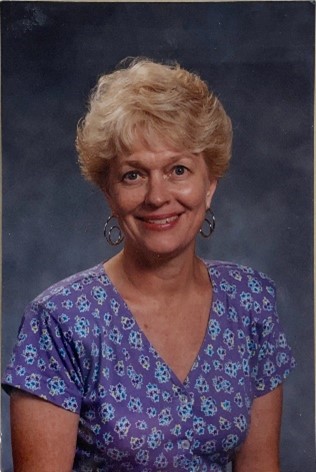 Kathryn “Kathy” Benson spent fifty years of her life employed at Concordia College. Through her work at the Kjos Health Center and beyond, she touched the lives of many and supported both students and staff in their physical and mental wellness. Benson was a deeply valued and beloved figure during her time at the college. Kathryn “Kathy” Benson spent fifty years of her life employed at Concordia College. Through her work at the Kjos Health Center and beyond, she touched the lives of many and supported both students and staff in their physical and mental wellness. Benson was a deeply valued and beloved figure during her time at the college.
|
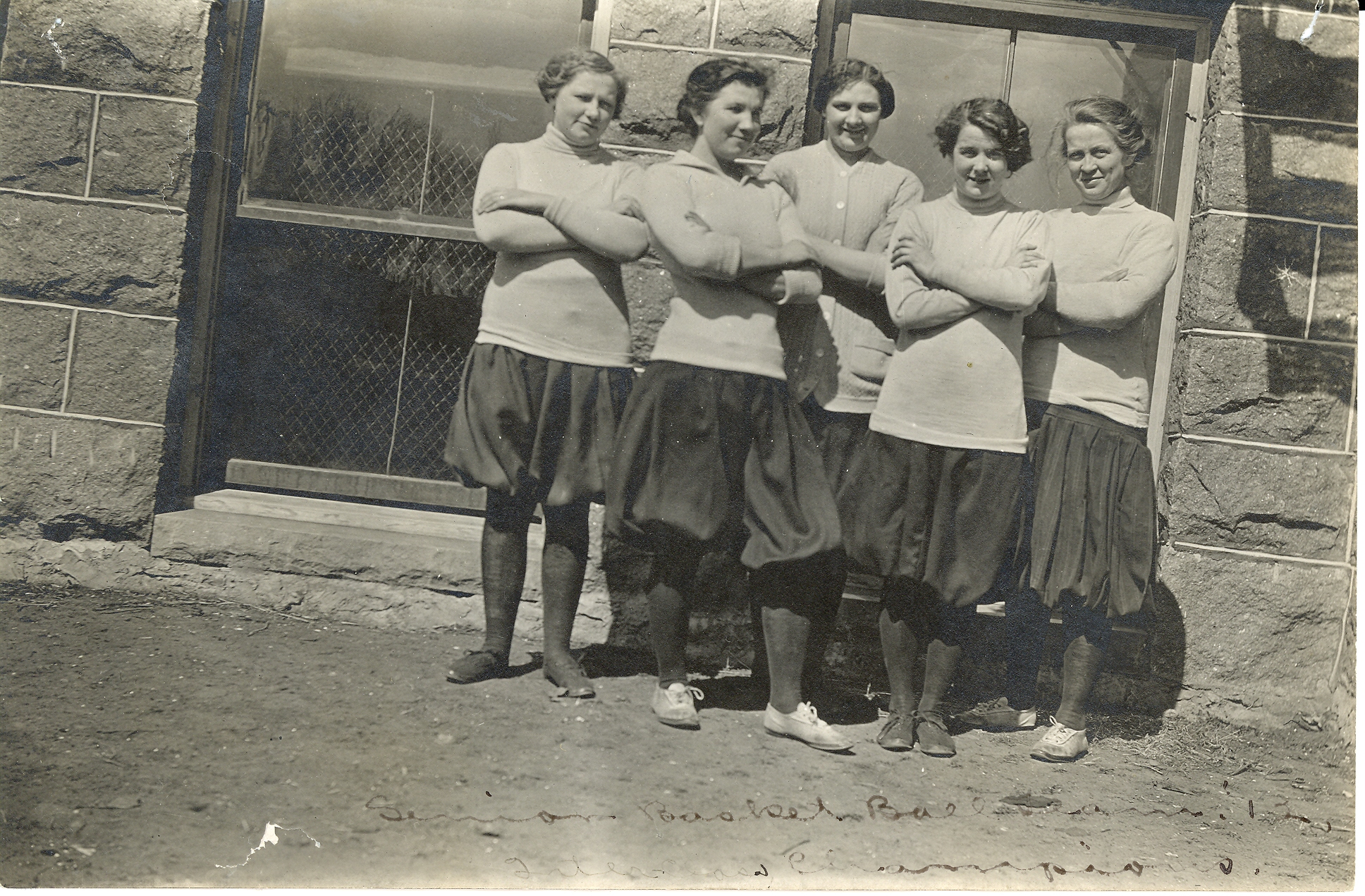 Women’s athletics thrive at Concordia, but the varsity programs currently known and loved did not have their beginning until 1972 and have undergone some dramatic changes in management over the decades, from the Women’s Athletic Association (WAA) and the Association for Intercollegiate Athletics for Women (AIAW), to the National Collegiate Athletic Association (NCAA). Women have fought for the chance to have their talents shine on the court, on the field, in the pool, and more, and while this trend towards gender equality is still ongoing, women’s athletics have nonetheless gained great strides. Women’s athletics thrive at Concordia, but the varsity programs currently known and loved did not have their beginning until 1972 and have undergone some dramatic changes in management over the decades, from the Women’s Athletic Association (WAA) and the Association for Intercollegiate Athletics for Women (AIAW), to the National Collegiate Athletic Association (NCAA). Women have fought for the chance to have their talents shine on the court, on the field, in the pool, and more, and while this trend towards gender equality is still ongoing, women’s athletics have nonetheless gained great strides.
|
 Concordia’s tradition of crowning a homecoming queen began in the 1920s. Student movements and the influence of the 1960-70s society affected the practice. Due to student concerns, the 1974 Homecoming Chairperson Ken Fitzer substituted the tradition of voting for a homecoming queen with the Don Awards, which was a recognition given to four exemplary senior students. The current practice of crowning both a king and queen began during the homecoming festivities in 1977.
Concordia’s tradition of crowning a homecoming queen began in the 1920s. Student movements and the influence of the 1960-70s society affected the practice. Due to student concerns, the 1974 Homecoming Chairperson Ken Fitzer substituted the tradition of voting for a homecoming queen with the Don Awards, which was a recognition given to four exemplary senior students. The current practice of crowning both a king and queen began during the homecoming festivities in 1977. 







